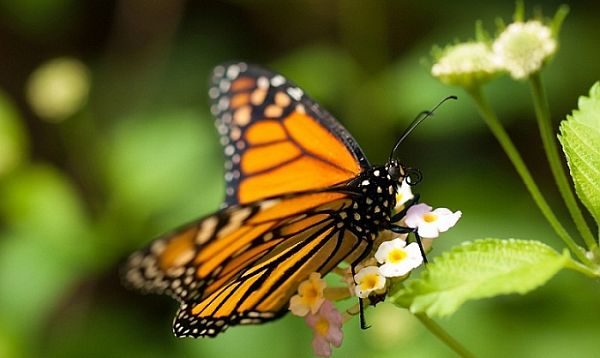Mexico City, Mexico - Each year, a tiny insect conducts one of the most staggering migrations for any animal. The monarch butterfly flies 3,000 miles from Canada and the U.S. to Mexico for the winter.
Between September and November, these butterflies conduct their fall migration. Most of these butterflies wind up in the sanctuaries of the Mariposa Monarca Biosphere Reserve in Mexico. They'll stay there until March, which is when they will begin their trip back north to North America and Canada.
Unfortunately, though, the monarch butterfly is suffering from climate change, monoculture, and insecticides. More specifically, the lack of milkweed, which is what the butterfly feeds on, has greatly impacted number. In fact, it's estimated that since 1997, monarch numbers have decreased from one billion to 56.6 million.
The monarch population that overwinters in Mexico has plummeted more than 90 percent in two decades - it is a perilous decline," said Rebecca Riley, an attorney with NRDC, who is attending the UNESCO meeting in Bonn, in an interview with NRDC. "The drop is linked to the destruction of monarch habitat as massive use of glyphosate in farm fields along the 'Butterfly Highway' through the U.S. and Canada has killed the milkweed plants monarch caterpillars need to survive. The preserve the spectacular monarch migration, we must act quickly, rather than spend years in deliberation as the crisis worsens."
Environmental advocates are calling for the ban of glyphosate-based pesticides. However, it could be years before any action is taken by the EPA.
In the meantime, conservationists are urging people to plant milkweed in their gardens and on their farms. This could potentially help the butterflies as they make their annual migration to Mexico.
Original article


